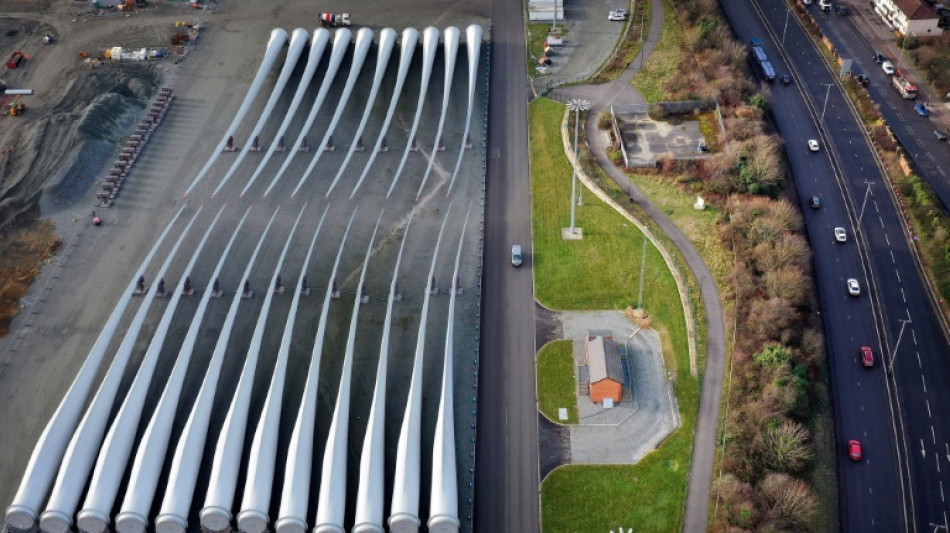
-
 Forest Champions League dreams hit after Brentford defeat
Forest Champions League dreams hit after Brentford defeat
-
'Resilient' Warriors aim to close out Rockets in bruising NBA playoff series

-
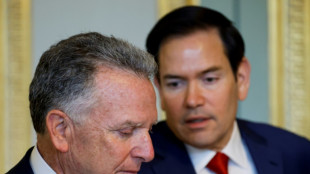 US expects Iran talks but Trump presses sanctions
US expects Iran talks but Trump presses sanctions
-
Baffert returns to Kentucky Derby, Journalism clear favorite

-
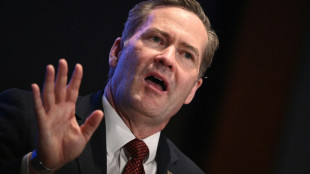 Top Trump security official replaced after chat group scandal
Top Trump security official replaced after chat group scandal
-
Masked protesters attack Socialists at France May Day rally

-
 Mumbai eliminate Rajasthan from IPL playoff race with bruising win
Mumbai eliminate Rajasthan from IPL playoff race with bruising win
-
McDonald's profits hit by weakness in US market

-
 Rio goes Gaga for US singer ahead of free concert
Rio goes Gaga for US singer ahead of free concert
-
New research reveals where N. American bird populations are crashing
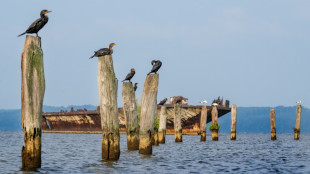
-
 Verstappen late to Miami GP as awaits birth of child
Verstappen late to Miami GP as awaits birth of child
-
Zelensky says minerals deal with US 'truly equal'
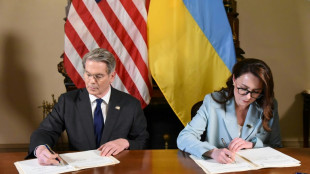
-
 Weinstein lawyer says accuser sought payday from complaint
Weinstein lawyer says accuser sought payday from complaint
-
Police arrest more than 400 in Istanbul May Day showdown
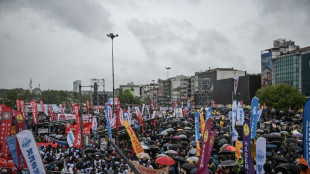
-
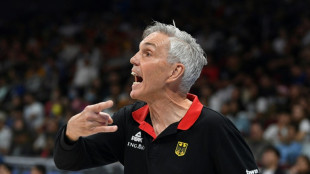 Herbert named head coach of Canada men's basketball team
Herbert named head coach of Canada men's basketball team
-
'Boss Baby' Suryavanshi falls to second-ball duck in IPL

-
 Shibutani siblings return to ice dance after seven years
Shibutani siblings return to ice dance after seven years
-
300,000 rally across France for May 1, union says

-
 US-Ukraine minerals deal: what we know
US-Ukraine minerals deal: what we know
-
Top Trump official ousted after chat group scandal: reports
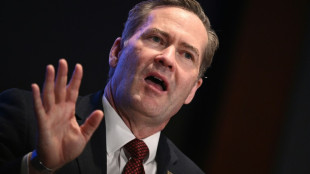
-
 Schueller hat-trick sends Bayern women to first double
Schueller hat-trick sends Bayern women to first double
-
Baudin in yellow on Tour de Romandie as Fortunato takes 2nd stage

-
 UK records hottest ever May Day
UK records hottest ever May Day
-
GM cuts 2025 outlook, projects up to $5 bn hit from tariffs

-
 Thousands of UK children write to WWII veterans ahead of VE Day
Thousands of UK children write to WWII veterans ahead of VE Day
-
Top Trump official exiting after chat group scandal: reports
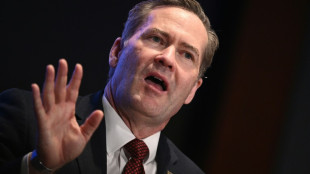
-
 Madrid Open holder Swiatek thrashed by Gauff in semis
Madrid Open holder Swiatek thrashed by Gauff in semis
-
Sheinbaum says agreed with Trump to 'improve' US-Mexico trade balance

-
 US veteran convicted of quadruple murder to be executed in Florida
US veteran convicted of quadruple murder to be executed in Florida
-
UK counter terrorism police probe Irish rappers Kneecap

-
 S. Korea crisis deepens with election frontrunner retrial, resignations
S. Korea crisis deepens with election frontrunner retrial, resignations
-
Trump administration releases report critical of youth gender care
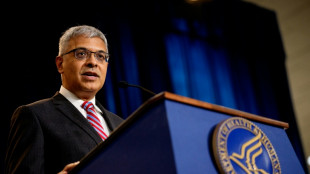
-
 IKEA opens new London city centre store
IKEA opens new London city centre store
-
Police deploy in force for May Day in Istanbul, arrest hundreds
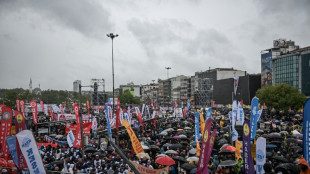
-
 Syria Druze leader condemns 'genocidal campaign' against community
Syria Druze leader condemns 'genocidal campaign' against community
-
Prince Harry to hear outcome of UK security appeal on Friday

-
 Microsoft raises Xbox prices globally, following Sony
Microsoft raises Xbox prices globally, following Sony
-
US stocks rise on Meta, Microsoft ahead of key labor data
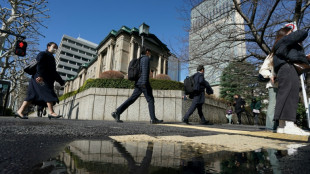
-
 Toulouse injuries mount as Ramos doubtful for Champions Cup semi
Toulouse injuries mount as Ramos doubtful for Champions Cup semi
-
Guardiola glad of Rodri return but uncertain if he'll play in FA Cup final

-
 Ruud sails past Medvedev into Madrid Open semis
Ruud sails past Medvedev into Madrid Open semis
-
'Not a commodity': UN staff rally over deep cuts
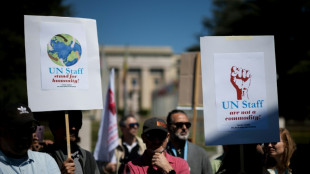
-
 Flintoff proud as Afghan refugee protege plays for Lancashire second team
Flintoff proud as Afghan refugee protege plays for Lancashire second team
-
Peruvian cardinal accused of abuse challenges late pope's sanction

-
 Trans women barred from women's football by English, Scottish FAs
Trans women barred from women's football by English, Scottish FAs
-
Oil prices drop, stocks diverge amid economic growth fears
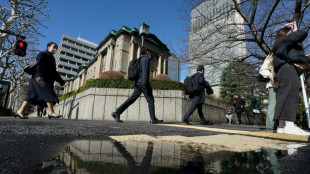
-
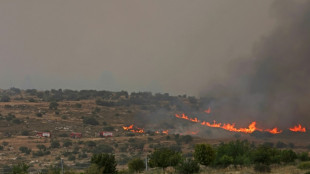 Israel brings fire near Jerusalem 'under control', reopens roads
Israel brings fire near Jerusalem 'under control', reopens roads
-
Lopetegui appointed coach of Qatar
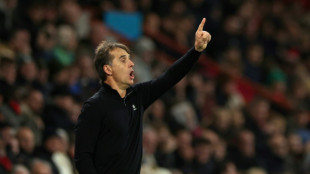
-
 UK counter-terrorism unit probes rappers Kneecap but music stars back band
UK counter-terrorism unit probes rappers Kneecap but music stars back band
-
Yamal heroics preserve Barca Champions League final dream


Wind powers change in England's industrial heartland
On the banks of the River Humber in northern England, the winds of change are blowing through Hull, where factory workers busily craft turbine blades in a green revolution.
Hull, known for a once-thriving fishing industry, the poet Philip Larkin, rugby league, and the city's eponymous football club recently bought by Turkish TV personality Acun Ilicali, is home to Britain's biggest wind turbine blade plant.
That has placed Hull at the centre of the UK government's long-term plan to slash carbon emissions, tackle climate change and cut rocketing household energy bills.
German-Spanish giant Siemens Gamesa is rapidly expanding its facility to meet booming demand and keep the country's much-trumpeted 2050 net-zero target on track.
The need for cheaper sources of energy became increasingly urgent this week, as the government scrambled to head off a cost of living crisis, faced with runaway electricity and gas costs that are fuelling decades-high inflation.
Britain unveiled financial support for households after the UK energy regulator lifted prices to reflect the spiking natural gas market.
- 'Cheaper and cleaner' -
"We are doing our bit to tidy the world up and get cheaper and cleaner energy for everybody," blade painter Carl Jackson, 56, told AFP from the factory floor.
"I think wind power is a big part of the future. It's been a massive boost to jobs and the economy in Hull," added Jackson, who joined when Siemens Gamesa opened six years ago.
The hub has since manufactured 1,500 hand-made turbine blades and now employs more than 1,000 people.
Prime Minister Boris Johnson, host of last November's UN climate change summit in Glasgow, has vowed to "level up" economic opportunity in places like Hull, which voted overwhelmingly for Brexit.
Siemens Gamesa built the £310-million plant jointly with Associated British Ports in 2016, and it is now undergoing a major extension to build bigger blades.
The Hull factory manufactures about 300 turbine blades per year, with each measuring 81 metres in length -- about the same as the wingspan of an Airbus A380 aircraft.
A wind turbine, comprising three such blades, can power an average house for 24 hours with one single rotation.
New, even longer 100-metre blades will provide enough power for up to two days.
- 'Driving down energy costs' -
In the cavernous Hull factory, staff assemble balsa wood, fibreglass and resin into vast blade moulds to start a journey that will eventually harness the ferocious winds of the North Sea.
That enables Britain to cut carbon emissions while curbing its dependency on imported energy and lowering prices in the long term, said plant director Andy Sykes.
"Over the course of last year, 25 percent of the UK's (electricity) was delivered from wind power," said Sykes.
"That will only continue to grow and help drive down the cost of energy by reducing the need for the import of energy."
The group will open another factory in Le Havre, northern France, this year in a push for cleaner energy across Europe, where wind generated an average 16 percent of electricity according to 2020 industry data.
Scotland recently awarded a string of vast offshore wind projects after Johnson vowed to make Britain the "Saudi Arabia of wind".
Hull is also expanding into the broader renewable sector, with plans for biofuels, green hydrogen, and carbon capture, as well as solar and tidal power generation under the city's "Green Port" initiative.
The local authority is eager to slash carbon output from the Humber estuary region, which accounts for 40 percent of Britain's industrial emissions -- particularly from the cement, gas, oil, petrochemicals and steel sectors.
"You really have to decarbonise the Humber area for the UK to be really able to address significant parts of its net zero challenge," Hull City Council climate officer Martin Budd told AFP.
"And this Siemens offshore wind plant provides a key activator to achieve that."
The Humber estuary's high seabed makes it ideal for offshore turbines.
At the same time, the estuary expels an estimated 12.3 million tonnes of carbon per year.
- Ensuring survival -
Budd said tackling climate change was vital to saving low-lying Hull from flooding.
"We are the second most vulnerable UK city after London to flooding. So the survival of the city depends on tackling climate change," he added.
"It's integral that we tackle climate change and that as a city we take those steps by supporting manufacturing in industries that are going to tackle climate change."
The UK wants offshore wind farms to provide one-third of the country's electricity by 2030.
Climate change specialist Nick Cowern, an emeritus professor at Newcastle University, cautioned that Britain also needed to develop chemical storage capability.
"It's realistic to put wind power at the centre of the UK's low carbon electricity generation approach, which is a major part of the effort towards net zero," he told AFP.
He added that while wind and solar were safe long-term bets, gas still had a significant role to play.
"Until we have the ability to store electricity as hydrogen -- or alternatives like ammonia -- and be better grid-connected to our neighbours in continental Europe and the Nordic countries, gas will still be needed during periods of low wind speeds and low solar generation."
Ch.Havering--AMWN